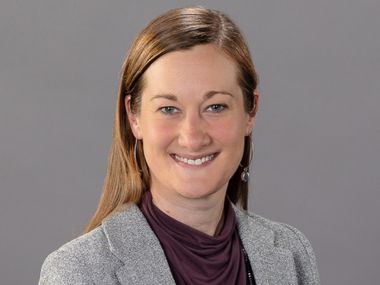Theresa McKim: Learning to code while analyzing neuroscience datasets
 Title
Title
Learning to code while analyzing neuroscience datasets
Mentor
Department
Biosketch
Theresa McKim, Ph.D., is an assistant teaching professor in the Department of Biology at the University of Nevada, Reno. She teaches neurobiology, data science, neuroscience laboratory techniques, and advises neuroscience students. McKim earned her Ph.D. in Behavioral and Integrative Neuroscience at the University of North Carolina (UNC). She completed a postdoctoral fellowship at Brown University and worked as a postdoc researcher at the Uniklinik Würzburg, Germany. Her expertise is in research methodologies, including fMRI, EEG, and noninvasive brain stimulation. Her published work utilized these methods to measure and manipulate brain function to better understand prefrontal cortex function in health and psychiatric disorders. Her current collaborative research is focused on (1) using computational approaches to understand sensory processing in the Drosophila melanogaster (fruit fly) nervous system, and (2) assessing the development of new educational materials to teach with large neuroscience datasets in the classroom. McKim is passionate about scientific outreach and uses science communication to engage the community in learning about neuroscience. She is an advocate for making science accessible to all. When she’s not teaching, McKim enjoys spending time outdoors in a hammock, hiking, yoga, baking, and knitting.
Project overview
The Pack Research Experience Program (PREP) student would conduct research on one of the two projects listed below.
Project 1: Characterizing the functional role of mitochondria in neurons producing neuropeptide hormones versus neurotransmitters in Drosophila
This project is focused on understanding differences in how mitochondria support energy requirements for signaling within the brain. We are interested in comparing neurons that use neurotransmitters versus neuropeptides in the Drosophila (fruit fly) brain. We hypothesize that these two types of neuronal signaling molecules have different energy requirements. The student would work with the recently published Drosophila connectome datasets with McKim in collaboration with the Zandawala lab (BMB Department). The student will be trained to work with this dataset and quantify the spatial distribution of mitochondria within the neurons. The student would learn to code in R while analyzing and visualizing this dataset. They will learn how to process and organize data to ensure quality for analysis, work with datasets that include brain data only versus with both the brain and nerve cord, and visualize data. The student will have the opportunity to attend Zandawala lab meetings, read and summarize primary literature on the topic, and practice their oral communication skills through lab meeting presentations. If the student is interested in pursuing the project further, there may be additional opportunities to work with the data.
Project 2: Learning to code in python while analyzing data from aging, dementia, and traumatic brain injury
The PREP student would work with existing online data from the Aging, Dementia and Traumatic Brain Injury study. McKim is interested in using this dataset to teach in her courses, and the PREP student would work with her to develop teaching materials and a plan for educational research that assesses achievement of student learning outcomes. The student would learn to code in python while analyzing and visualizing this dataset. They will learn how to process and organize data to ensure quality for analysis, join datasets that include donor specimen information and brain pathology metrics, and replicate analyses and visualizations from published papers. They will produce an online code notebook to share results. The PREP student would also learn about education-based research and assessment. If the student is interested in pursuing the project further, there may be additional opportunities to work with future educational assessment data.
Pack Research Experience Program information and application